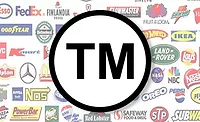Roofing on Federal Projects; Nagivating FAR and E-Verify
Before bidding for a federal contract, it is important to understand the ramifications and requirements that come along with federal contracts in terms of E-Verify.

Before bidding for a federal contract, it’s important to understand the ramifications and requirements that come with E-Verify.
Federal contracts can be a great source of revenue for a contractor. They provide financial security in that the payments owed to contractors are backed by the United States government. A federal contract can also provide stability in work since contracts have the potential to carry long terms. As such, many contractors seek to bid on federal contracts for these and other benefits.
However, federal contracts require that certain rules be imposed on contractors that may not be imposed on contractors in the private construction industry.
One such rule is the requirement to verify the employment eligibility of all employees that work on federal contracts through E-Verify.
Is an E-Verify Clause Mandatory?
For companies with federal contracts, each company is required by the Federal Acquisition Regulation (FAR) rule to verify the employment eligibility of workers through E-Verify. Created by an executive order in 2008, the FAR only applies to those workers covered by the federal contract. In practice, this limitation rarely limits which employees you are required to E-Verify. Since 2008, all federal contracts should include the E-Verify clause.
The most current E-Verify clause will contain the following:
Employment Eligibility Verification (OCT 2015)
(b) Enrollment and verification requirements.
(1) If the Contractor is not enrolled as a Federal Contractor in E-Verify at time of contract award, the Contractor shall —
(i)Enroll. Enroll as a Federal Contractor in the E-Verify
program within 30 calendar days of contract award;
(ii)Verify all new employees. Within 90 calendar days of
enrollment in the E-Verify program, begin to use E-Verify to
initiate verification of employment eligibility of all new hires of
the Contractor, who are working in the United States, whether or
not assigned to the contract, within 3 business days after the date
of hire (but see paragraph (b)(3) of this section); and
(iii)Verify employees assigned to the contract. For each
employee assigned to the contract, initiate verification within
90 calendar days after date of enrollment or within 30
calendar days of the employee’s assignment to the contract,
whichever date is later (but see paragraph (b)(4) of this section).
If your federal contract has this language, then the requirement to verify the employment eligibility of workers through E-Verify is present in your federal contract.
What Does the FAR Require?
The FAR requires every company that has a federal contract to utilize E-Verify to electronically verify the employment eligibility of workers who perform work under a federal contract. The FAR gives the employer the option to verify the employment eligibility of their entire workforce or only the employees performing work assigned to the federal contract. There are certain exceptions to this rule where a federal contractor does not have to enroll in E-Verify because the contract is considered exempt or the employee is or may be exempt. The contract exemption applies under the following situations:
1. The contract is for fewer than 120 days.
2. It is valued at less than the simplified acquisition threshold, which is currently set at $150,000.
3. All the work is performed outside the U.S.
4. It includes only commercially available, off-the-shelf items and related services.
For those contracts that are subject to FAR, as previously stated, all employees that will perform work under the federal contract will need to have their employment eligibility verified through E-Verify. However, like the contract exemption, there are exemptions for certain employees that are not permitted to have their employment eligibility verified through E-Verify. This mandatory exemption applies to the following types of employees:
1. Employees hired on or before Nov. 6, 1986 and have continuously worked for the same employer.
2. Employees hired in the Commonwealth of the Northern Mariana Islands on or before Nov. 27, 2009.
3. Employees previously confirmed as authorized to work in E-Verify and continuing in employment with the same employer.
It’s important to note that the company will still need to register and E-Verify according to the FAR. The exemptions only apply to the specific employees that meet the exemption guidelines. Still, there are other types of employees that the employer may or may not E-Verify. These types of employees include:
1. Employees who normally perform support work and do not perform any substantial duties applicable to the contract.
a. However, the employer must verify these employees if the employee is a new hire or if the employer chooses to verify its entire workforce.
2. Employees who hold an active confidential, secret, or top secret security clearance in accordance with the National Industrial Security Program Operating Manual.
3. Employees who have undergone a completed background investigation and who have been issued credentials pursuant to Homeland Security Presidential Directive — 12 (HSPD-12 credential).
While the FAR provides many exceptions for federal contractors to not have to verify the employment eligibility of workers through E-Verify, in reality, many of these exceptions never apply to contractors. Additionally, the FAR requires that all future employees hired during the term of the contract, whether or not they perform services under the federal contract or are assigned to the contract, to verify the employment eligibility of workers through E-Verify.
Why is This Important?
Companies that do not rely solely on government contracts will be required to verify the employment eligibility of any new employees that are hired for the company through E-Verify, regardless of whether they perform work under the federal contract or not. It’s important for companies in the construction industry to understand that signing a federal contract will ultimately subject many of its workforce to E-Verify.
The nature of the industry is that there is high turnover in employees. With high turnover comes new hires, and those new hires, regardless of their jobs or functions, will be subject to the E-Verify requirement. Therefore, for contractors whose source of business is solely through federal contracts, this analysis is moot. But for contractors whose source of business does not only rely on federal contracts, they need to seriously consider whether subjecting their workforce to E-Verify is what’s best for business.
Before bidding for a federal contract, it’s important to understand the ramifications and requirements that come along in terms of E-Verify. It’s important that you consult an experienced attorney before committing your company to any federal contract.
Looking for a reprint of this article?
From high-res PDFs to custom plaques, order your copy today!






